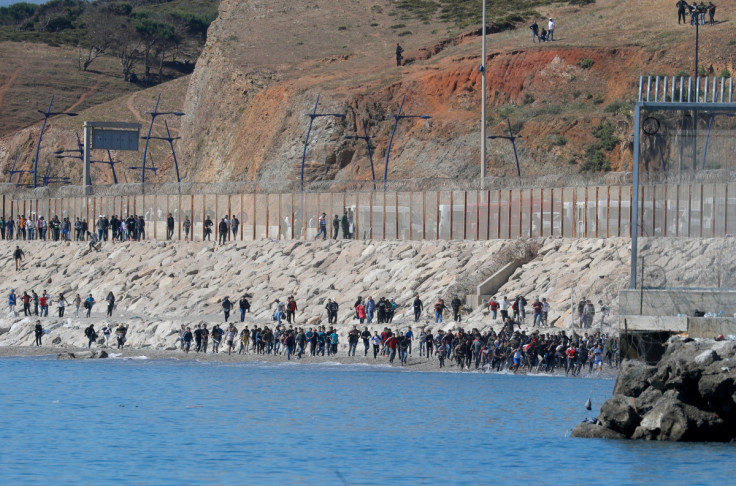Spain, Morocco Forge Economic Ties As Western Sahara Policy Reversal Eases Tensions

Spain and Morocco will hold their first bilateral summit in eight years on Thursday as they seek to strengthen economic ties and build on a diplomatic truce reached last year after disputes over migration and territory.
Prime Minister Pedro Sanchez and 12 members of his cabinet will meet their counterparts in Rabat to sign as many as 20 agreements to boost trade and investment, including credit lines of up to 800 million euros ($873 million), and bring the two countries closer together in areas beyond migration.
Bilateral trade rose to 17 billion euros in 2022, making Spain Morocco's biggest trade partner.
Madrid is seeking to turn the page on a testy relationship with Rabat that has sparked regular diplomatic crises, most recently the storming by 8,000 migrants of Spain's north African enclave of Ceuta in 2021 after Morocco relaxed border controls.
The event was seen as a response to Madrid's decision to allow Brahim Ghali, leader of the Polisario Front rebel group which seeks to establish an independent state in Western Sahara, to enter Spain for medical treatment without informing Rabat.
Sanchez restored cordial relations with Rabat in March 2022 after he reversed former colonial master Spain's four-decade policy on the Western Sahara by backing Morocco's proposal to create an autonomous region.
The about-turn drew the ire of Algeria, a Polisario Front ally, which suspended a 20-year friendship treaty with Spain and warned it could cut the flow of natural gas even as it forges closer gas ties with Italy.
The disputes underscore Spain's dependence on Morocco to control migration by Moroccans and sub-Saharan Africans seeking to cross the European Union's southernmost border.
Last June Morocco gave a blunt demonstration of its key role on migration when its law enforcement quelled an attempted mass border crossing into Melilla, Spain's other North African enclave, in a move that left at least 23 people dead and scores injured.
'HAND ON THE TAP'
While a Spanish ombudsman investigation into that incident remains open, Madrid has hailed a general drop in migration numbers, both to the Spanish archipelago and via the Western Mediterranean route, especially as migrant arrivals to Europe via other Mediterranean routes increase.
Illegal arrivals to the Canary Islands fell 30% in 2022 from a year earlier, the Interior Ministry said.
Some observers say the drop in migration could prove temporary and that Spain remains too dependent on Morocco.
"Morocco has its hand on the tap and uses migration as a way to send messages to its northern neighbours and even to obtain concessions," said Haizam Amirah-Fernandez, a senior analyst at the Elcano Royal Institute, a Madrid think-tank.
For a sustained fall in migration, Spain needs more cooperation with Morocco when it comes to repatriating illegal Moroccan migrants, said Blanca Garces, senior researcher in migration at the Barcelona Centre for International Affairs.
Spain managed to expel just 5.5% of its 28,349 requests for extraditions in 2021, Spain's ombudsman said. Expulsions fell by 69% to 1,569 in 2021 compared to 2016.
Sustaining the truce has forced Sanchez's Socialists into some uncomfortable positions such as voting against a resolution in the European Parliament to call on Morocco to improve its record on press freedom.
Juan Fernando Lopez, an MEP for the Socialist Party, said at an event on Monday that compromises were sometimes necessary to maintain cordial relations with a neighbour, arguing that "if you have to swallow a toad, you swallow it".
($1 = 0.9161 euros)
© Copyright Thomson Reuters 2024. All rights reserved.





















